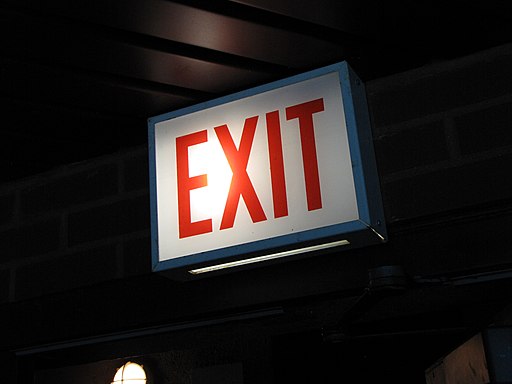
Have you ever encountered a klansman at the grocery store? I have. I instantly recognized him as a member of the Ku Klux Klan because I’d seen him speak (sans hood) at a Klan rally (I was one of the protesters, not one of the klansmen) and on local TV repping the organization.
I didn’t speak with him, both because I didn’t want to and because I didn’t have to.
I also didn’t roll my cart to the front of the store, abandon it, loudly announce that if he was allowed to shop there I wouldn’t be shopping there, stomp out in a huff, and tell all my friends that if they ever wanted to talk to me a grocery store, I’d be at the one across town.
Shortly after Elon Musk purchased and took control of Twitter, the hashtag #leavingtwitter began to trend as various people (including “celebrities,” many of whom I’ve never heard) metaphorically stomped off of the platform because … well, because.
There are lots of reasons to leave Twitter.
Some of those reasons — it’s turned into a time-wasting addiction, it feels creepy to be advertised to based on the algorithm’s surveillance of one’s interests, etc. — make sense to me. It’s not that they’re good or bad per se. They’re just personal choices that make sense to the people leaving. And with numerous alternatives to choose from, it’s not like #leavingtwitter means doing without social media. No biggie.
The biggest factor driving the #leavingtwitter trend, though, seems to be the equivalent of noticing the klansman in the grocery store and storming out theatrically. That’s incredibly dumb.
Yes, Musk has told the Bad People they can stay (or return), with wider permissions to say Bad Things on his newly acquired platform.
But nobody has to talk with the Bad People or listen to the Bad Things. Everyone’s free to ignore the Bad People, and can even block those Bad People so as to never be forced to notice their Bad Shouting.
Good Person A can get her social media “groceries,” and Bad Person B can get his, without the two ever interacting at all beyond Good Person A noticing Bad Person B’s presence and hitting the “block” link.
So far as I can tell, #leavingtwitter is largely an exercise in performance art — tiresome performance art.
If other people (even Bad People) saying what they want to say (even Bad Things) troubles you that much, especially when you have the power to keep that speech out of your own “hearing,” you’re as much a part of society’s problems as they are.
The cure for bad speech is more speech, not self-imposed exile.
Do as you like, but I’m not #leavingtwitter.
Thomas L. Knapp (Twitter: @thomaslknapp) is director and senior news analyst at the William Lloyd Garrison Center for Libertarian Advocacy Journalism (thegarrisoncenter.org). He lives and works in north central Florida.
PUBLICATION/CITATION HISTORY
